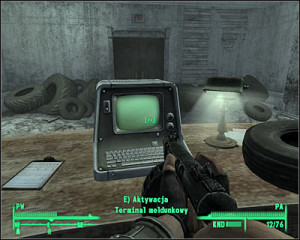Libraries with Handful of Books, Television without Real Choices
 You walk into your local library only to find largely empty shelves. On closer inspection, the books appear to be dumbed down, and with identical messages. The same is true for what’s available on television.
You walk into your local library only to find largely empty shelves. On closer inspection, the books appear to be dumbed down, and with identical messages. The same is true for what’s available on television.
Libraries appear to have lost their traditional mission, and blue-collar workers have replaced intellectuals as librarians. Not to worry, libraries have reinvented themselves as community entertainment centers and homeless shelters, though some books have been kept for branding purposes.
Watch the evening news—ABC, NBC, CBS, Fox, even PBS—to see if real differences are noticeable. They seem to speak with one voice about trendy progressive issues. History is more likely to focus on the entertainment world—a newly dead actor’s contribution to liberal values or an athlete’s breaking of this or that racial or gender barrier.
The Academy Awards and SuperBowl and Olympics come from the same Madison Avenue cookie cutter, don’t they. Liberals and conservatives seem united at last, both political parties having finally embraced across the aisle.
Books are pretty much a thing of the past. Grandchildren don’t bring them along on their annual visits, and only white-haired people are seen reading them at airports. Yet it is easy to point out that the newly fashioned Great Brain or Internet Backbone is supplying every household and classroom with a digital cornucopia of knowledge, entertainment, and connectivity.
Even so, dark clouds are now mingling with the “smart” silver lining. Foreign hackers seem to penetrate deeply into government and financial networks. Software upgrades can’t come fast enough it seems to block the ever-present con artists. Government agencies and the legal infrastructure can’t even live up to their “do not call” consumer protection schemes against unwanted telephone disruptions.
 The worst is yet to come, perhaps. Any global war beyond superpowers will first take out the easy utilities based upon networks, backbones, cables, towers, pipelines and all other concentrated conduits and grids. Perhaps more lives will be lost because of unrequited digital dependence than through nuclear weapons.
The worst is yet to come, perhaps. Any global war beyond superpowers will first take out the easy utilities based upon networks, backbones, cables, towers, pipelines and all other concentrated conduits and grids. Perhaps more lives will be lost because of unrequited digital dependence than through nuclear weapons.
It may well be that book-based home libraries will ultimately save civilization once flat-screens have been turned into pieces of electronic trash. Ask those who once crawled from the bombed-out ruins of WWII Europe. Better yet, books will hold diverse points of view from ages past, not just the prevailing politics of the machine currently in power.
Who knows, out of ashes the charred remains of Louis L’Amour’s Education of a Wandering Man might teach a new generation of survivors the way to renewal.

 You walk into your local library only to find largely empty shelves. On closer inspection, the books appear to be dumbed down, and with identical messages. The same is true for what’s available on television.
You walk into your local library only to find largely empty shelves. On closer inspection, the books appear to be dumbed down, and with identical messages. The same is true for what’s available on television. The worst is yet to come, perhaps. Any global war beyond superpowers will first take out the easy utilities based upon networks, backbones, cables, towers, pipelines and all other concentrated conduits and grids. Perhaps more lives will be lost because of unrequited digital dependence than through nuclear weapons.
The worst is yet to come, perhaps. Any global war beyond superpowers will first take out the easy utilities based upon networks, backbones, cables, towers, pipelines and all other concentrated conduits and grids. Perhaps more lives will be lost because of unrequited digital dependence than through nuclear weapons.